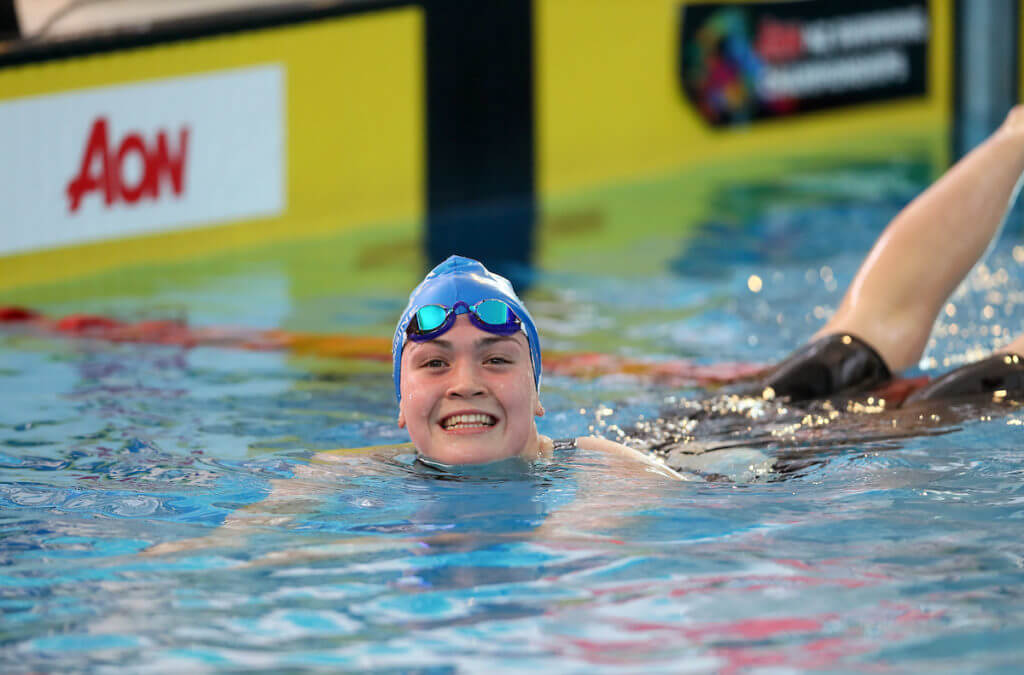Olympic Final at 17 Is ‘Amazing’ Bonus for New Zealand’s Erika Fairweather

Editorial content for the 2021 Tokyo Olympic Games coverage is sponsored by GMX7.
See full event coverage. Follow GMX7 on Instagram at @GMX7training #gmx7

Olympic Final at 17 Is ‘Amazing’ Bonus for New Zealand’s Erika Fairweather
Erika Fairweather had high if modest hopes of what she could achieve at the Tokyo Olympics. After all, at age 17, the New Zealand distance star has much more career in front of her than behind.
She approached her swim in the women’s 400 freestyle unfettered by pressure or expectation, occupying an outside lane with (on paper) little chance to make a final. She was elated to yield a time that got her into a final Monday night and ultimately an eighth-place finish.
With her eyes down the road in her career, the early marker is as special as it is unexpected.
“It’s so amazing,” Fairweather said Wednesday night. “I didn’t expect to make the final or semifinal, so getting that experience and being able to say that I made an Olympic final is just unreal.”
It’s easy to lose the significance of what Fairweather is doing among the other buzzy names in the women’s distance field. Ariarne Titmus is solidifying her status as a bona fide, double-gold star at age 20. The established superstar she has taken aim at, Katie Ledecky, is A) anything but old at age 24 and in her third Olympics, and B) still a force to be reckoned with, as her gold in the 1,500 free shows.
Ledecky was the elder stateswoman in the final of the women’s 400 free. Six of the swimmers were under born after 2000, including two in 2002 and two in 2003. Fairweather is the second-youngest of the group, with her Dec. 31 birthday. And while attention rightly has gone to 14-year-old Summer McIntosh of Canada, 800 free swimmer Katie Grimes with her “future Ledecky” label, and the daunting program being undertaken by 19-year-old Li Bingjie of China, Fairweather is not a prospect to overlook.
“It was such a young race compared to other ones,” Fairweather said. “There’s so much new blood coming through and that’s so exciting. We kind of get to grow up together in this sport and continue racing each other for many years to come.”
Fairweather managed to stand out in prelims, posting the fourth-fastest time at 4:02.28. That set the New Zealand record, taking down the mark set in 2012 Kiwi legend Lauren Boyle. Though Fairweather didn’t follow it up in the final (she went 4:08.01 to finish eighth), that wasn’t necessarily the goal. A final was a dream finish, much less a medal.
“It definitely helped me realize that I can step up onto the world stage like I have,” Fairweather said. “It’s a whole new kettle of fish. It definitely did help, but there’s so much to learn from this one.”
The evidence is around her on the New Zealand team. Lewis Clareburt is having an outstanding meet on the men’s side, finishing seventh in the men’s 400 IM. He’ll swim the final of the men’s 200 IM on Friday.
Clareburt turned 22 this month. Erika Fairweather will be 20 when the Paris Olympics arrive in 2024, and the extra year to Tokyo has proven valuable for her to emerge. Her swimming future is bright, something that was obvious even before the Olympics. But the 400 free prelims time shows that her future as a global factor is imminent.
“If you put it into perspective, lots of my other teammates are at that 20, 21, 22 mark,” she said. “Knowing that when I’m they’re age and I will have already had an Olympic Games under my belt is super reassuring.”




